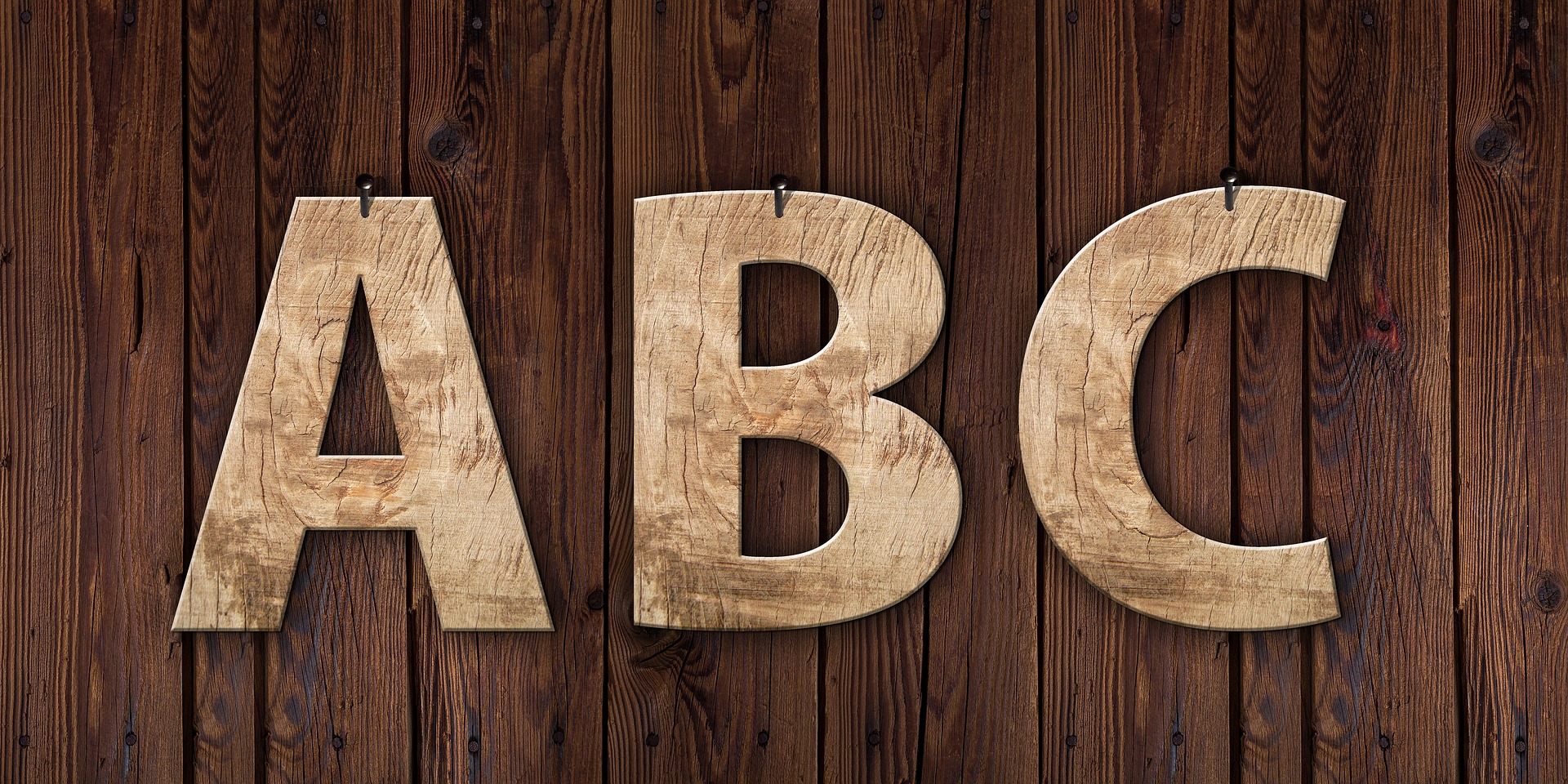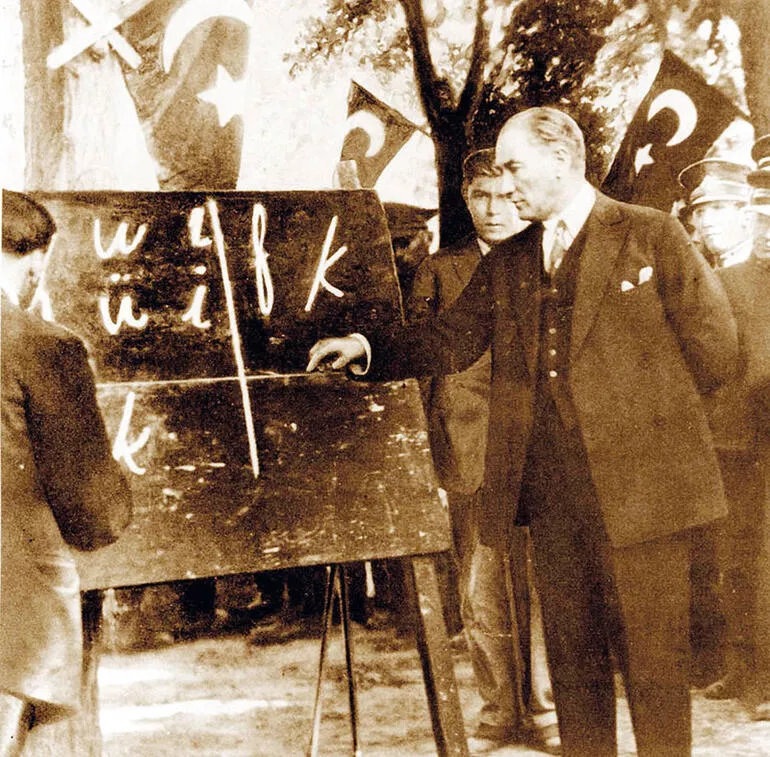
What to Say on the Letter Revolution
The letter revolution has been the main argument of those who accuse Atatürk of irreligion. But what is the truth? Is the alphabet revolution really a work of irreligion?
Firstly, it is necessary to enter the issue from here: No alphabet on earth is "sacred (!)". It is important to realise this. If we look at all languages as a miracle of Allah Ta'ala, a proof of His existence, then all languages and alphabets should be considered sacred. For this reason, in connection with the sentence I said at the beginning of the paragraph, the fact that the Qur'an is in Arabic does not make Arabic sacred. This must be realised first.
Secondly, the alphabets used by Turks throughout history have always changed. There is no ideological or religious reason for this. It is purely a matter of need. In the Republican period, such a need arose and the alphabet was changed. This is all there is to it. Turks did not adopt the Arabic alphabet as soon as they became Muslims. Moreover, there have been Turkish states that were Muslim but did not use the Arabic alphabet.
The funniest claim is that 20 million people became illiterate overnight. The reading rate in the Ottoman Empire in the 1920s was 2 per cent. At the end of the War of Independence, the country's population was around 17 million. In other words, there is no mass of people who will become illiterate overnight, because the literacy rate is only 2 per cent. Oh, by the way, this issue of illiteracy is not really about illiteracy. In other words, there are also people who know how to read and write but are ignorant of the world and their country, and we call them ignorant.
Whatever.

Thirdly, it is not difficult to learn and use Arabic letters. But when it comes to Ottoman Turkish, it is necessary to stop there. Ottoman is a mixture of 3 languages; Arabic, Persian and Turkish. In order to fully learn this language, it is necessary to have full command of these 3 languages. This is exactly the place where the zurna is at its peak. You cannot learn Ottoman Turkish only by learning the Arabic alphabet. In addition to Arabic, you need to know Persian and Turkish very well; you need to know all idioms, phrases, word derivations and vocabulary very well. Otherwise, as some people say, the Ottoman you have learnt will only help you to read gravestones; other than that, you cannot even go near Ottoman history books written in Ottoman. After all this, the following objections come up: "Chinese, Japanese and Hebrew are also languages with alphabets that are difficult to learn. But the nations speaking these languages do not change their alphabets." This is a completely correct observation, but an incomplete one. The alphabets of the languages mentioned are difficult. In fact, if I am not mistaken, it is necessary to know 2000 characters for Chinese. But all of these alphabets are compatible with the relevant language. Arabic and Ottoman alphabets are not compatible with Turkish. Arabic does not have the letter "Ü" or the letter "G". Similarly, there are no Turkish-specific letters in Ottoman Turkish. There are letters invented in Ottoman Turkish (not in the Arabic alphabet) to fulfil the letters in question, but they are still insufficient to give the sound of the letter in question. For this reason, the Latin alphabet, which is the closest alphabet to Turkish, was taken and the Turkish sounds "ı,ü,ğ,ö,ç,ş" has been added.
The fact that this issue has been dragged into the enmity of Atatürk and the Republic is a disease of traitorous minds serving foreign powers. These masses, who use religion for their own interests and mock Allah, are representatives of Muawiya's religion, not of true Islam. These masses, whose only concern is to deceive the people, insult Atatürk and the Republic because they have been deprived of their opportunities.
One way or another, the most appropriate alphabet for the Turkish language is the one we are using now. There will be no going back from this.
Another dimension of the issue is that it is up to the people themselves whether or not to break the connection with the past. In other words, if you show sincerity in learning and teaching the past, history, and living and keeping the old customs alive, you will maintain your connection with the past. Apart from this, you have to be open and ready for innovations. Because life is not fixed; it constantly changes, develops and takes different forms. In such a universe, it is obvious that you cannot stay where you are.
If you would like to hear an expert comment on the subject, click.
Yorumlar
Yapacağınız yorumlarda kendi fikirlerinizi belirtiniz. Sağdan soldan kopyala-yapıştır yapmayınız! Kimseye hakaret etmeyiniz! Gizlilik ve yorum kurallarımız için buraya tıklayınız.